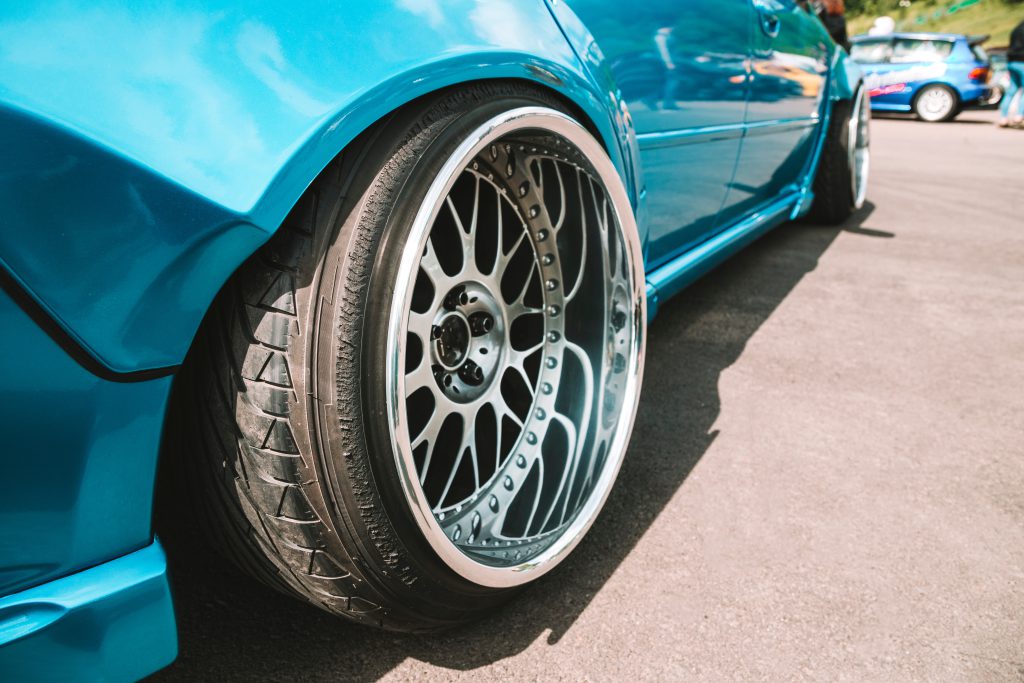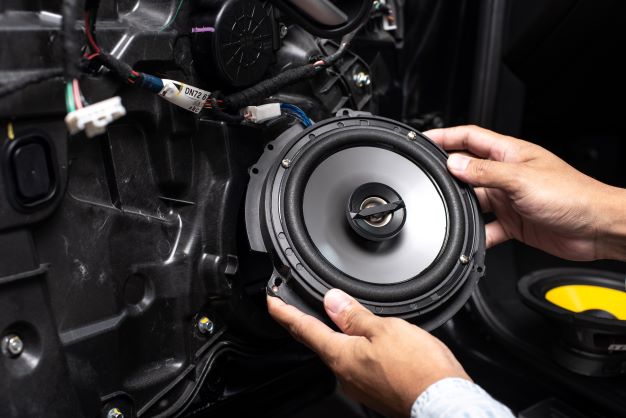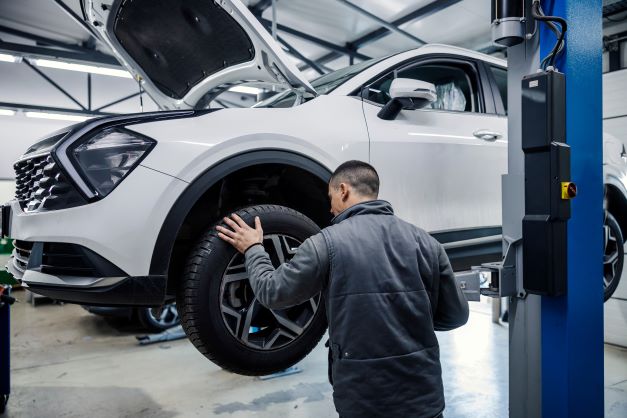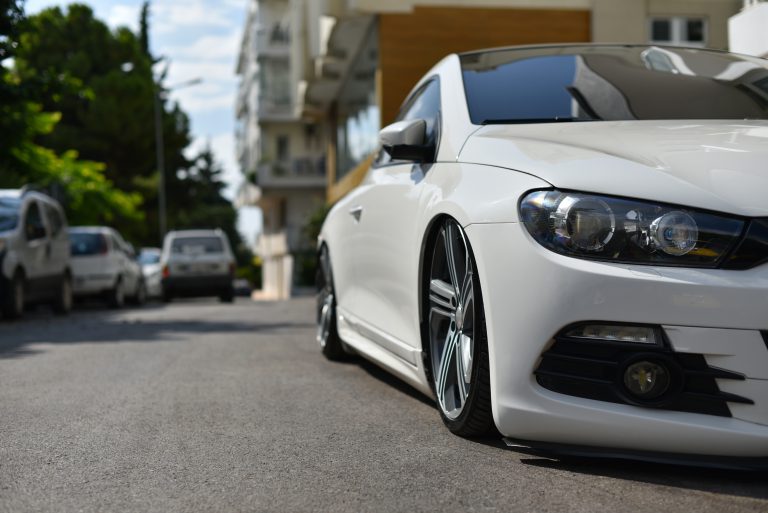Manufacturers make vehicles to certain specifications because they want to appeal to a wide range of people. However, you might want to consider changing certain aspects of your vehicle’s features to make it more personalised to you.
This can either increase your insurance premiums as repairs or replacements will be more expensive, or the modifications you make could mean your car’s more secure, so your insurance will be less.
Before going down this route though, it’s important to think about what modifications affect car insurance. Take a look below at our compiled car insurance modifications list, where we also outline how modifications may affect insurance.
- What car modifications affect car insurance?
- Mechanical modifications
- Changing wheels and tyres
- Modifying the bodywork
- Changes to the interior
- Summary
What car modifications affect car insurance?

It is very likely though that any car modifications you make will affect your car insurance policy in some way. It is rare that you’ll any car modifications that don’t affect insurance policies.
Without modified car insurance many types of modifications, from cosmetic changes like tinted windows to mechanical changes such as engine tuning, could make your car insurance policy cheaper or more expensive.
Once a car has left the factory, any changes that are made to it are considered a modification and, by law, you should always let your insurance provider know of any changes you make.
We’ve created a list of some of the most popular types of modifications and how they can affect your premium.
Mechanical modifications
Car modifications to the engine, usually to make a car faster, and other vehicle mechanics like the exhaust system can increase car performance, meaning it’s likely to push up the cost of your car insurance premium and must therefore be declared.
Larger exhaust
Making your exhaust system larger and louder could mean paying more for your car insurance, but before you do this, it’s worth noting that it’s illegal to remove the silencer. If it’s missing or broken, you could face a fine, but not only that; illegal modifications will invalidate your car insurance policy.
Engine performance
Installing a turbo or supercharger is likely to increase the cost of your policy and even installing an Engine Control Unit (ECU) to make your modified car more economical can make your car insurance more expensive.
Before doing so, you might want to think about whether fitting one is actually going to save you money. In some cases, car owners choose to downsize their car’s engine to make them more energy efficient, which could in fact mean a less expensive car insurance premium; but any engine modification should always be declared.
Brakes
Some drivers – especially those who have already made other car modifications to their vehicles – may decide to install high-performance brakes. This is possible to do on some non-sports cars and if your car is already highly modified, improving your braking system could reduce your premium. However, if this is one of the only car modifications you’ve made to your car, it’s unlikely to affect the cost of your car insurance, as most cars are fitted with suitable brakes by the factory.
Upgrading your car’s brake discs and pads could add value to your vehicle, as some of them are quite expensive, and consequently, this could put up the price of your car insurance. Similarly transmission or gear change alterations and air filter upgrades can also make your policy more costly.
Changing wheels and tyres

Another car modification that can significantly alter the handling of your vehicle is making changes to the wheels. Wheel modifications are likely to increase the value of your car, so if you do decide to fit alloy wheels or wider tyres, you’ll need to declare this to your car insurance provider to see whether your premium will be affected.
Winter tyres shouldn’t negatively impact your car insurance because most providers realise that they help improve the handling of your modified car in tricky driving conditions.
Several years ago more than 70 companies signed an agreement saying they wouldn’t increase premiums for declaring that you have them. Winter tyres are even less likely to make a difference to your premium if they’re approved by the car manufacturer.
Alloy wheels are usually ordered at the time you buy a new car, however they can easily be added afterwards. They’re stronger and lighter than steel ones and there’s less weight for the suspension to cope with and less resistance when you steer, meaning improved car handling.
You might want to check whether there’s a history of alloy theft in your area, though, as that can have an impact on your car insurance premium.
Wheel modifications that aren’t related to performance – like novelty hubcaps that spin or light up – are unlikely to affect your premium, however you should notify your insurance provider as they can also be a theft risk.
Modifying the bodywork

Although most car’s suspension is adequate as standard, upgrading it could make a noticeable difference to how the car handles. It’s unlikely to affect your car insurance costs though unless your vehicle has already had many car modifications.
When lowering your suspension, it’s worth keeping in mind that there are strict rules around steering and headlight aim. Your headlights could potentially dazzle other drivers and it’s also worth noting that over-lowering could affect the car’s ability to clear speed-bumps.
In most cases, though, these types of car modifications tend to be mainly cosmetic and it’s unlikely to affect your car insurance.
Body kits
Typically comprised of bumpers, spoilers, side skirts and bonnets, a complete body kit isn’t necessarily made with safety in mind. Sporty bumpers on modified vehicles could shatter on the tiniest of impacts and side skirts can be hazardous on uneven roads, as the vehicle has less ground clearance.
Car modifications like could force a insurance company to raise their premiums, whereas a modified car insurance policy is unlikely to be affected – unless the value of the vehicle has been dramatically increased.
Cosmetic modifications like splitters, valances and flared wings can have an effect on your car insurance, but that’s not the only thing to bear in mind. Some exterior car modifications may be popular but that doesn’t necessarily mean they’re legal, so it’s always worth checking before you make any changes.
Decals & stickers
You might be surprised to know that decals and stickers are classed as car modifications by some insurance providers; as are custom paint jobs. If an insurance provider has had to make payouts for modified cars with a collection of bumper stickers or racing stripes for example, they may be reluctant to cover you if you already have them on your vehicle or you’re thinking about applying them.
Tinted windows
As long as they’re legal, tinted windows won’t affect your insurance premium. Just make sure your tinted windows let at least 75% of light through your front windscreen and 70% can get through the front side windows. There aren’t any car insurance restrictions on tinting your rear windscreen and windows.
Lighting
Young drivers in particular choose to add neon lights underneath their modified cars, which is allowed by law providing the tubing isn’t visible and the neon lights are not distracting to other drivers because it’s too bright or flashing.
Some drivers also choose to customise their headlights, but the front lights have to be white and the back must be red. Coloured LEDs could mean an on-the-spot fine and invalidate your policy, however generally speaking lights won’t affect your insurance premium.
Also, adding a tow bar is also unlikely to have impact on your car insurance. A tow bar, however, should still be declared to your insurance company because you’re making car modifications to the specifications set by the manufacturer.
Changes to the interior

Upgrading your sound system is one of the most popular ways to modify your car’s interior. Many drivers decide to install a subwoofer to maximise the low frequency of bass sounds. This is a fairly cheap car modification and is unlikely to increase the cost of your car insurance cover.
Other interior car modifications that probably won’t affect insurance premiums are dashboard upgrades and add-ons like in-built sat-nav systems and car phones or changes to the panelling. Whether you’re replacing your gear knob for aesthetic reasons or simply because it’s worn out, the price of your policy shouldn’t be affected by doing that either.
Car seats
Removing or replacing seats, however, can have an impact. You might not think it, but insurance providers will even want to know whether you’ve reupholstered them. Changes to a modified car steering wheel and pedals are also considered to be key modifications that must be reported to your provider.
Security
Vehicle modifications which increase the security of your car won’t negatively affect your insurance premium. If anything, it’s likely to go down. Devices such as trackers, immobilisers and extra safety locks could reduce the risk of theft, meaning a lesser expensive policy. Installing trackers to heavily modified cars will, in most cases, reduce car insurance premiums.
Summary

You may not think particular modifications you make will affect insurance premiums, but you must declare modifications and let insurance providers know about all of them. If you do have an accident, your insurance provider may not pay out on the car mid policy as the information you originally gave them could be different, making your policy invalidated.
Even choosing alloy wheels as an optional extra on a new car will be seen as a car modification by an insurance provider, and although it won’t affect your premium too much as it will have been made by the manufacturer, you still need to declare it.
When you report any car modifications to your insurance company, you should be as truthful and as detailed as possible so that they can do an appropriate risk calculation, especially if you do not have modified car insurance.
Specialist modified car insurance
Specialist modified car insurance policies are available to modified car enthusiasts and owners, covering everything regular car insurance policies do, but also with additional modified car cover options.
Certain modifications can increase a standard insurance price, so specialist modified car insurance is there as an option for modified car owners who are looking to pay less than they would with standard car insurance whenever they decide they want to upgrade their modified vehicle.
Howden can help you find cheap modified car insurance cover from a specialist insurance company so that you can avoid paying over the odds insurance costs, whilst still making modifications to your vehicle.
Find out more on our website about what modified car insurance covers and how you could benefit from a specialised policy.
Modified car related articles:
- Does your insurance go up if you modify your car?
- Modified cars – are you driving one and don’t know it?
- Does your insurance go up if you modify your car?
- Can you get modified van insurance?
- Driving a modified car and don’t know it?
You could also read:
- Party season – check your limits now.
- Traffic light cameras: Everything you need to know
- Are you driving in an uninsured hotspot?
- Can I get insurance with a drink driving conviction?
- Free MOT status checker – Check a vehicle’s MOT history
- Try our free-to-use Car Tax Checker

